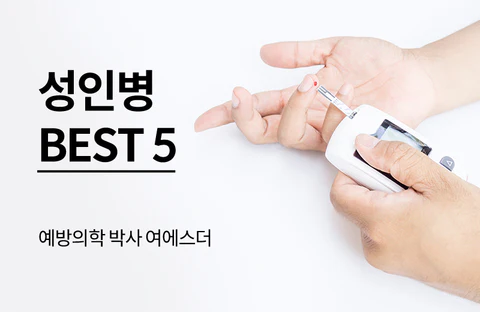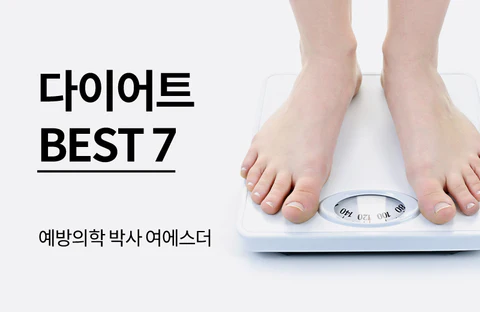BEST 5 adult diseases
01 Multivitamin
02 Calcium
03 Magnesium
04 Omega-3
05 Coenzyme Q10

Are supplements the liver?
One of the most common questions I hear from people with adult diseases (lifestyle-related diseases) is that if I already take a lot of medication, and taking nutritional supplements will put too much pressure on my liver. Nope. On the contrary, the more illness you have, and the more medications you take, the more you need to be helped by a variety of nutritional supplements. Properly formulated supplements do not put a strain on the liver. Supplements do not lower blood pressure or blood sugar like medications. However, nutritional supplements help prevent nutrient deficiencies caused by various medications and prevent tissue damage and inflammatory responses in the body that can be caused by high blood pressure or diabetes. My basic recommendation for people with adult health conditions is a multivitamin, calcium and magnesium preparation, omega-3s, and coenzyme Q10 if needed.
National Institutes of Health's diet for hypertensive patients
For people with high blood pressure, there is a dietary regimen called the DASH (Dietary Approach Stop Hypertension) diet, which was developed by the National Institutes of Health and nutritionists. It is a dietary regimen that lowers the intake of sodium, saturated fat, and sugar, and increases the intake of potassium, calcium, magnesium, protein, and fiber. To this end, it is recommended to eat unwhole grains frequently, fruits and vegetables 4~5 times a day, and low-fat or non-fat dairy products about 2 times a day. Add to this the daily low-fat meat or fish, It is recommended to eat one of the poultry and eat foods such as seeds, nuts, and beans at least 4~5 times per week. Practicing this diet for about two weeks lowers systolic blood pressure by 11 mmHg and diastolic blood pressure by 6 mmHg in people with high blood pressure. Even in normal people, it has the effect of lowering axial blood pressure by 4 mmHg and diastolic blood pressure by about 2 mmHg. According to a report published in the United States, such a diet can reduce the risk of stroke and coronary sinus vein disease by 15~20%. The DASH diet is the best diet for people with adult diseases and is recommended by the American Diabetes Association. One of the keys to the DASH diet is to make sure you get enough calcium, potassium, and magnesium.
01
Multivitamins, calcium and magnesium preparations are recommended
If you have high blood pressure, we recommend a multivitamin and calcium and magnesium supplements. This is because there are so many different types of nutrients that can be deficient with blood pressure medications that it is better to supplement in the form of a multivitamin rather than one at a time. And in the case of mineral preparations, studies have shown that excessive intake of calcium alone is not good for heart disease, so you can take a combination of calcium and magnesium about 1 pill a day. Multivitamins can be taken after breakfast. Calcium and magnesium preparations are recommended to be taken after dinner as they play a role in stabilizing the nerves, but if you often forget to take them, you can take them with a multivitamin after breakfast. Taking these supplements does not cause your blood pressure to drop as much as you would with blood pressure medication. However, if these nutrients are insufficient, blood pressure can rise. For those with high blood pressure, coenzyme Q10 is also helpful. Although the effect of lowering blood pressure is not significant, it is especially helpful for those who have had high blood pressure for more than 20 years and have developed heart failure due to poorly controlled blood pressure. Heart failure is a condition in which the walls of the heart thicken and stretch for decades, reducing the strength of the heart muscle to pump blood, resulting in shortness of breath and, in severe cases, water filling the lungs. Coenzyme Q10 helps the heart muscle produce energy, which contracts well and pumps blood out of the heart effectively.
If you have high blood pressure
There are three minerals that people with high blood pressure should not be deficient in. They are calcium, potassium, and magnesium. These are the so-called three musketeers of minerals to beat high blood pressure. A deficiency of these three minerals can lead to poor blood pressure control and increased side effects of high blood pressure. For example, a lack of potassium increases the risk of arrhythmias and myocardial infarction. The saltier you eat, the more potassium deficient you may be, and sweating a lot in the sauna can lead to potassium deficiency as you lose water.
For those with diabetes
Diabetes causes an inflammatory response in various parts of the body. Retinal disease, kidney disease, and ulcers on the feet, all known complications of diabetes, all start with inflammation. One of the most important supplements for people with diabetes is omega-3. The leading cause of death in diabetics is myocardial infarction. Omega-3s reduce inflammation levels in diabetics, reduce the risk of sudden death from a myocardial infarction, and lower the risk of recurrence, especially if a patient has had a single myocardial infarction. The effects of omega-3s wear off about 4 months after eating a sufficient amount. Especially if you're a diabetic with high triglycerides, it's a good idea to get enough omega-3s. In general, 1,000 mg of omega-3s should be taken at least 2 capsules per day. If your triglyceride level is above 500 mg/dl, increase the dosage to 4 capsules per day, 2 capsules twice a day in the morning and evening.
02
Magnesium and chromium also help
Two minerals that are important for people with diabetes are magnesium and chromium. Magnesium also plays a role in boosting insulin response and reducing complications from diabetes in people with diabetes. Chromium is a mineral that is necessary for carbohydrates and fats to be metabolized. It is known as a diabetes-fighting factor, or glucose tolerance factor, which improves blood sugar levels in diabetics and enhances insulin production. If chromium deficiency occurs, total cholesterol and triglyceride levels increase, and heart-healthy high-density cholesterol (HDL) drops. In addition, chromium is known to play an important role in burning body fat and building muscle. Chromium is more unrefined grains (brown rice) than fruits and vegetables, It is contained in a lot of brewer's yeast, mushrooms, meat. You don't need to take chromium, just the amount of chromium in a good multivitamin. It is better to supplement magnesium with calcium and magnesium preparations than with a single preparation. Diabetes medications cause deficiencies in several nutrients in the body. Metformin, which is prescribed to diabetics, reduces folate, vitamin B12, and coenzyme Q10, and diabetic medications such as glibenclamide also deplete coenzyme Q10. So, just like high blood pressure medications, if you're on diabetes medications for a long time, it's a good idea to take a multivitamin and coenzyme Q10 together.
03
Consider protein powders and fiber
One more recommendation for people with diabetes is protein powder or dietary fiber preparations with pazeolamine, which are used in diets. Pairing protein powder with low-fat milk between meals (between meals) can help you eat less and maintain muscle. Even in the same diabetic patient, having more thigh muscles leads to better blood sugar control and a lower risk of sudden death from myocardial infarction. The thigh muscles act as a kind of blood vessel cleaner, which is why they are so important for people with diabetes. If you have thicker thigh muscles, you will burn body fat better, which will reduce the chances of abdominal obesity and clean your blood vessels. Pazeolamine is a kidney bean ingredient and is actually an ingredient in diabetes medications. Eating fiber with pazeolamine 30 minutes before meals can reduce some of the carbohydrates entering the body and help reduce abdominal obesity. It's important to note that these formulations don't block 100% of carbohydrates' absorption into the body. Therefore, if you only trust supplements and eat a lot, your blood sugar may rise even more, so it is better to control the amount of food you eat.
04
Look at those with hyperlipidemia
The most important nutrient for people with hyperlipidemia is coenzyme Q10. This is because the most susceptible component of hyperlipidemia drugs is coenzyme Q10. Lack of coenzyme Q10 due to statin drugs, which are the main drugs for hyperlipidemia, can lead to a very rare complication called rhabdomyopathy. If you are prescribed cholesterol medication at the doctor, your doctor will tell you to check your liver function and muscle cell breakdown levels called CPK every three months. This is to check if liver function or muscles have been damaged while taking medication. However, not many people have elevated CPK levels, which can be used to indicate muscle damage, in an actual blood test. However, some people who take hyperlipidemia medications for a long period of time feel weak and weak in their muscles. In these cases, 100 mg of coenzyme Q10 daily is recommended. Rhabdomyopathy is a very rare complication, but it can occur when you suddenly need energy, such as a long run such as a marathon, an alpine climb, or a trip abroad on a long schedule. In this case, it is recommended to increase the dose of coenzyme Q10 to about 200~300mg. Minerals that are helpful for people with hyperlipidemia are calcium and magnesium. Calcium plays a role in inhibiting the absorption of fats into the intestines. Magnesium, like calcium, binds with fat and removes fat from the body, which improves lipid levels in the blood. One of the nicknames given to magnesium is "natural statins," which means that it is helpful for those with hyperlipidemia. Omega-3s are also important nutrients. Omega-3s do not lower bad low-density cholesterol (LDL) levels. However, omega-3s can help blood vessels with hyperlipidemia by raising levels of high-density cholesterol (HDL), which acts as a vascular cleaner, and lowering triglyceride levels.\





Comments (0)
There are no comments for this article. Be the first one to leave a message!